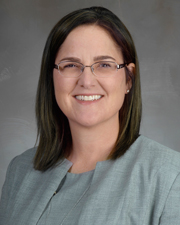Your gift will provide hope to the growing number of people worldwide living with a neurologic disease. This gift could be the catalyst to spark new collaborations and research programs, enhance our educational efforts, and lead to transformative programs throughout UTHealth Houston.

Welcome to the Department of Neurology at the McGovern Medical School. The faculty and staff here are committed to providing the best neurological care to patients affected by neurological disease to improve function and enhance quality of life. Researchers in the Department are actively pursuing novel therapeutic targets both in the laboratory as well as in the clinic, and we offer numerous clinical trials. Our mission is to develop and provide cutting-edge therapies and personalized approaches to treatment for the residents of Texas, the region, and nationally. The department provides a collaborative home to clinicians, clinician scientists and basic science researchers. We are dedicated to the education and mentorship of medical students, residents, fellows and junior faculty as our goal is to educate the next generation of leaders in academic neurology. We provide a comprehensive learning environment that emphasizes interpersonal interactions and promotes collaborations with other departments throughout the UTHealth Houston, with our partner hospital Memorial Hermann, and other clinical sites throughout the Houston area.
As you navigate this website, you will see that we offer a variety of training experiences, in a comprehensive range of subspecialties, reflecting the growing complexity of Neurology and Clinical Neuroscience.
We welcome your comments. Thank you for visiting our site.
Louise McCullough, M.D., Ph.D.
Chair, Department of Neurology